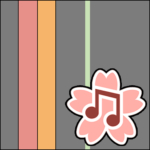
Na-adjectives are one of the two main types of Japanese adjectives, the second being i-adjectives (which we will learn about on the next page).
A na-adjective gets it name from the fact that it usually is followed by the hiragana “な / na”, which marks it as an adjective.
Here are a few often-used na-adjectives. (In fact, you might call them stereotypical, but I assure you, these are useful.) We will be using them again on upcoming examples so you won’t forget them.
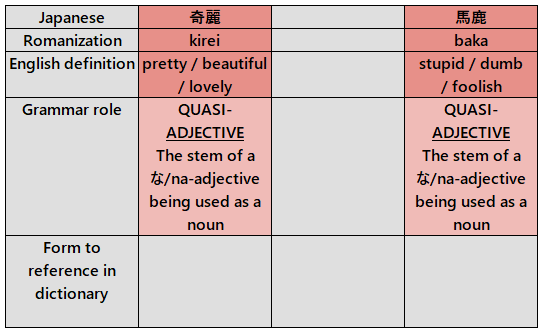
“Baka” is a very common insult, you will hear it a lot (especially in anime).
“Kirei” is commonly used to describe attractive women, locations, and things.
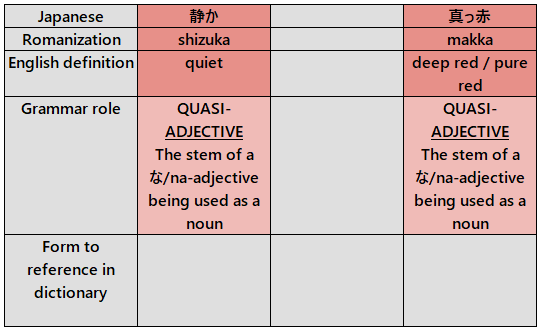
You might be thinking “You said these were na-adjectives, but I don’t see a single na in sight! What’s going on?!”
You are right to ask. The na in a na-adjective is actually invisible sometimes. It only comes out when it is needed. On the previous page, I said that we would learn about na-adjectives first, because they are used similarly to nouns (which we learned as the first grammar point). In English, na-adjectives are actually called quasi-adjectives.
“Quasi” is a strange-sounding Latin word, but I feel that defining it will help you understand how na-adjectives are special.
To start, I want to make sure you know how to pronounce it:
“Quasi” means “as if / resembling / have some features of”.
“Quasi-adjective” means “as if it were an adjective”.
In other words, a na-adjective is actually an adjectival noun, meaning it is a noun that modifies another noun.
When a na-adjective/quasi-adjective has a hiragana “な” behind it, it is modifying the noun that follows.
If it the na-adjective has no “na” behind it, it is being used as a noun.
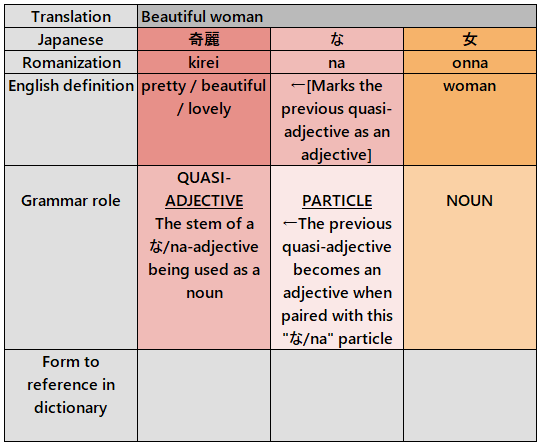
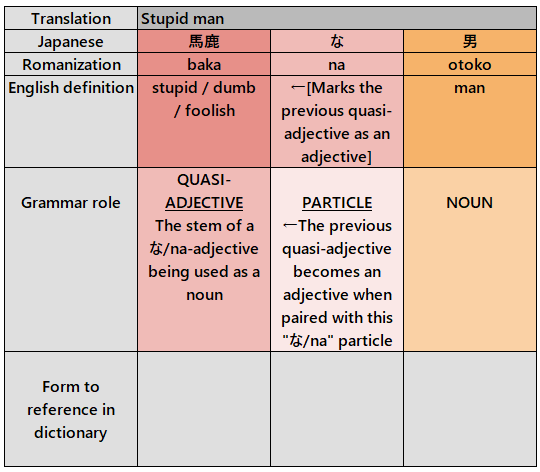
requires a copula
these are complete sentences (quasi-adjective + copula)
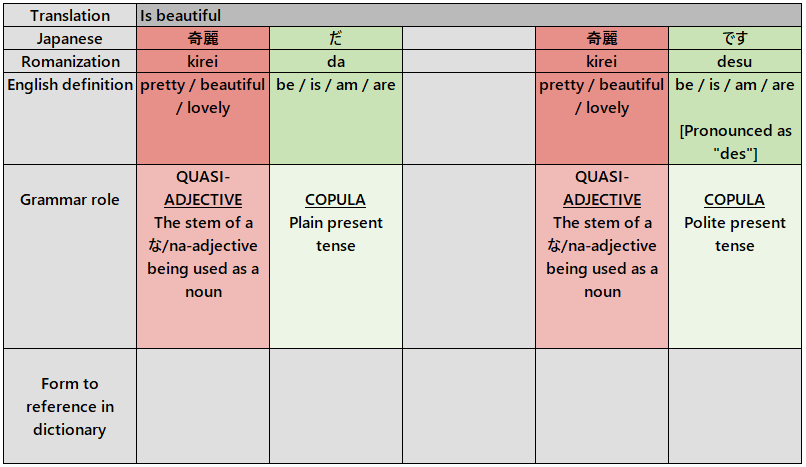
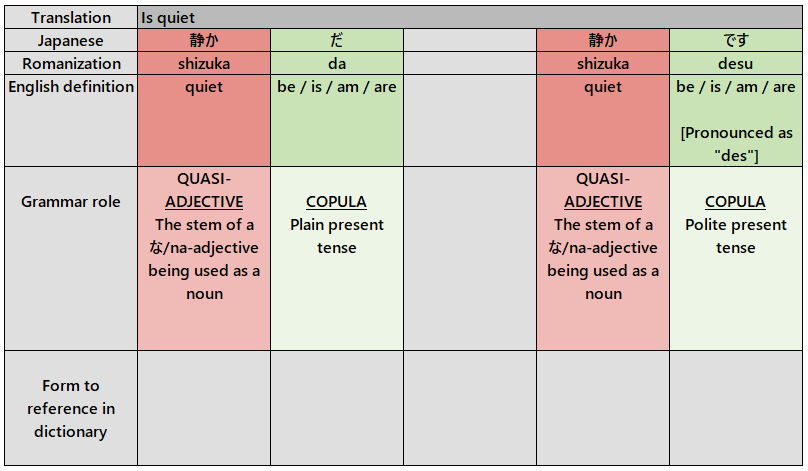
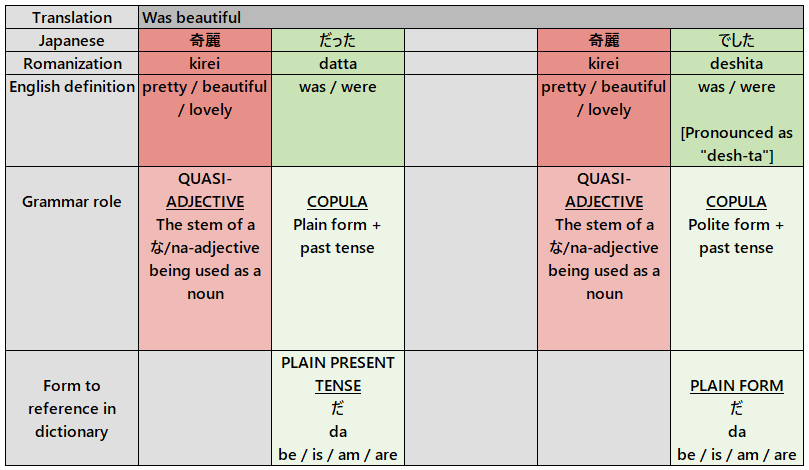
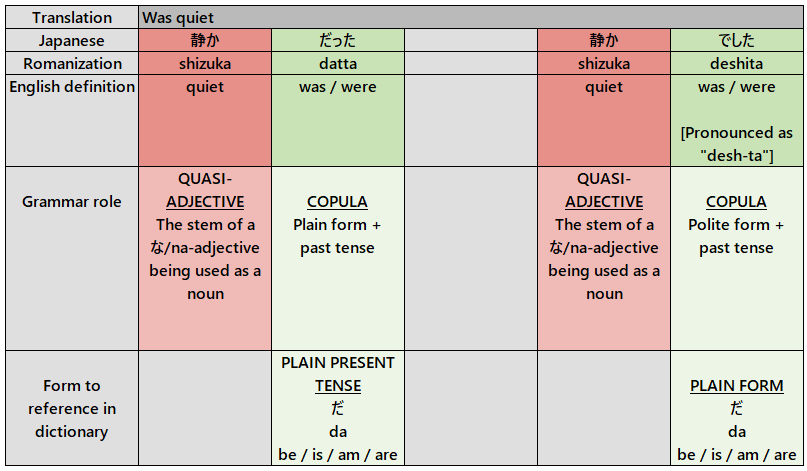
We are only on the 5th page of this grammar guide and we already made a complete sentence! It uses 3 of our rainbow colors: Red, orange, and light green.
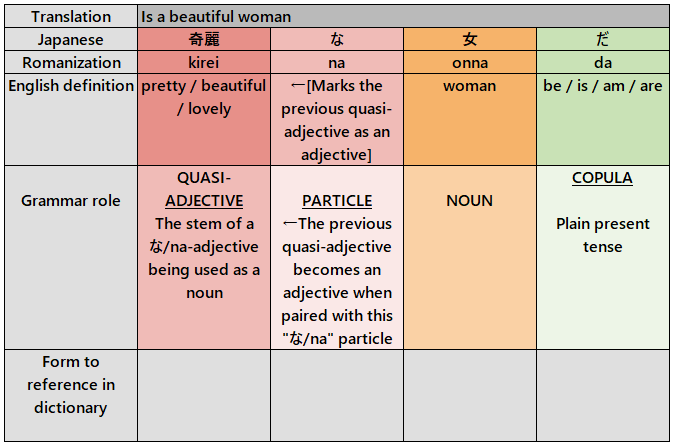
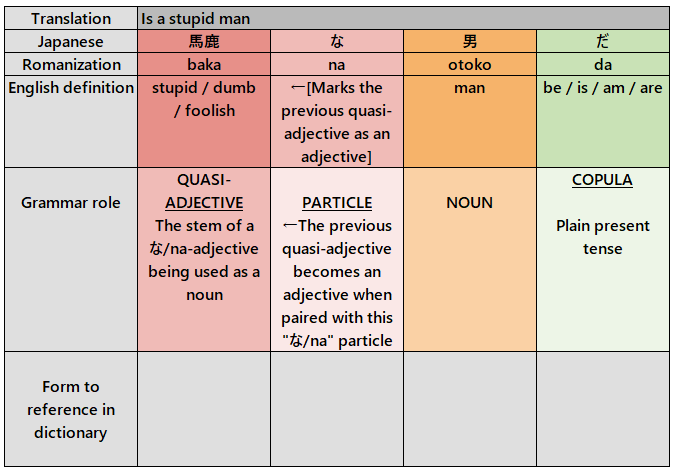
In Japanese, context is key, so these sentences could be used like:
Person 1: “What is Bob like?”
Person 2: “(He) is a stupid man.”
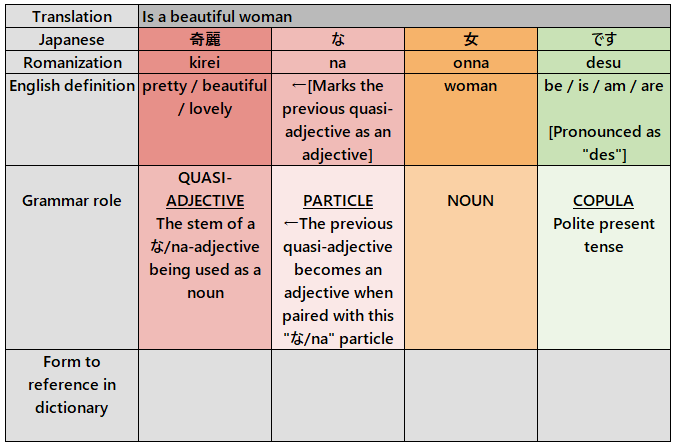
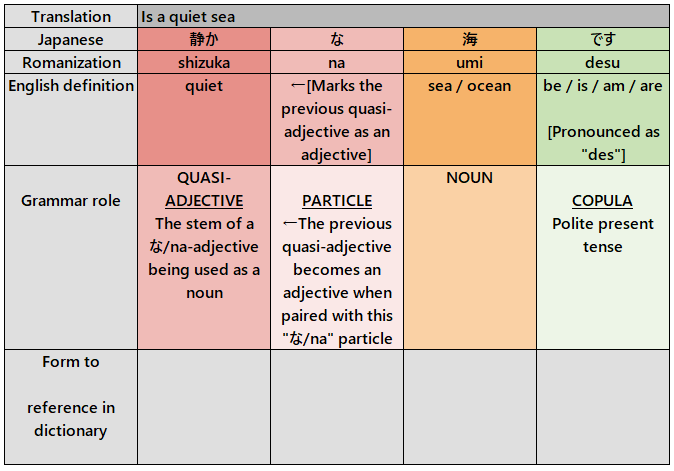
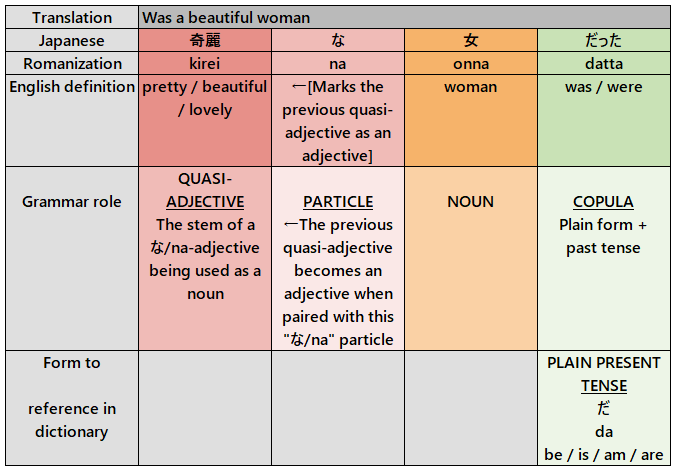
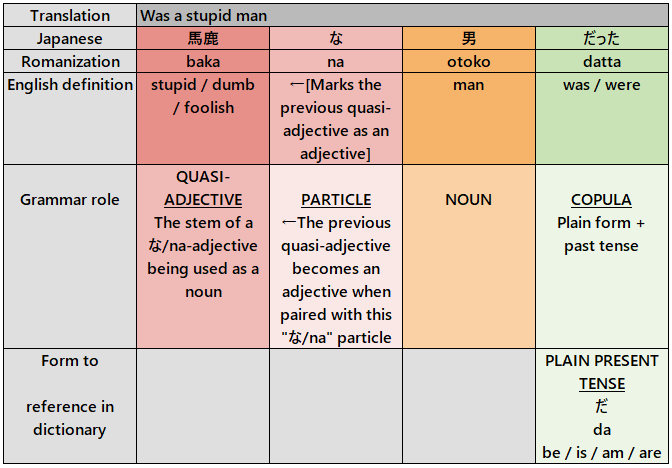
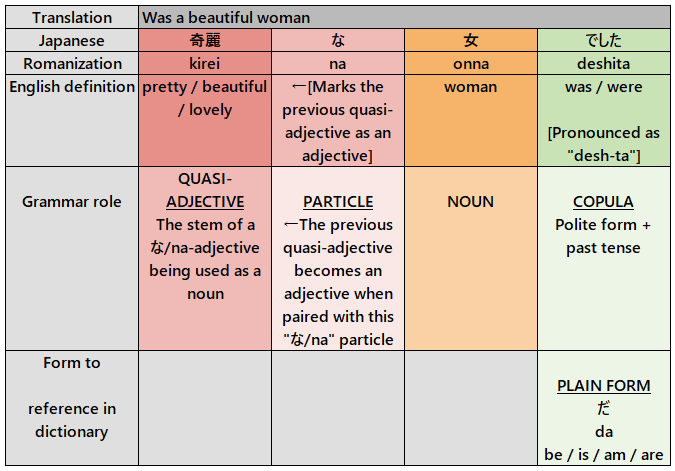
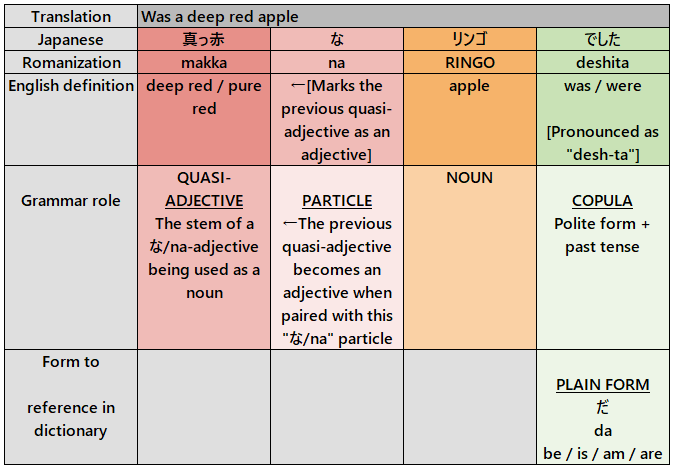
Person 1: “Was that a red pear you had for lunch?”
Person 2: “It was a deep red apple.”